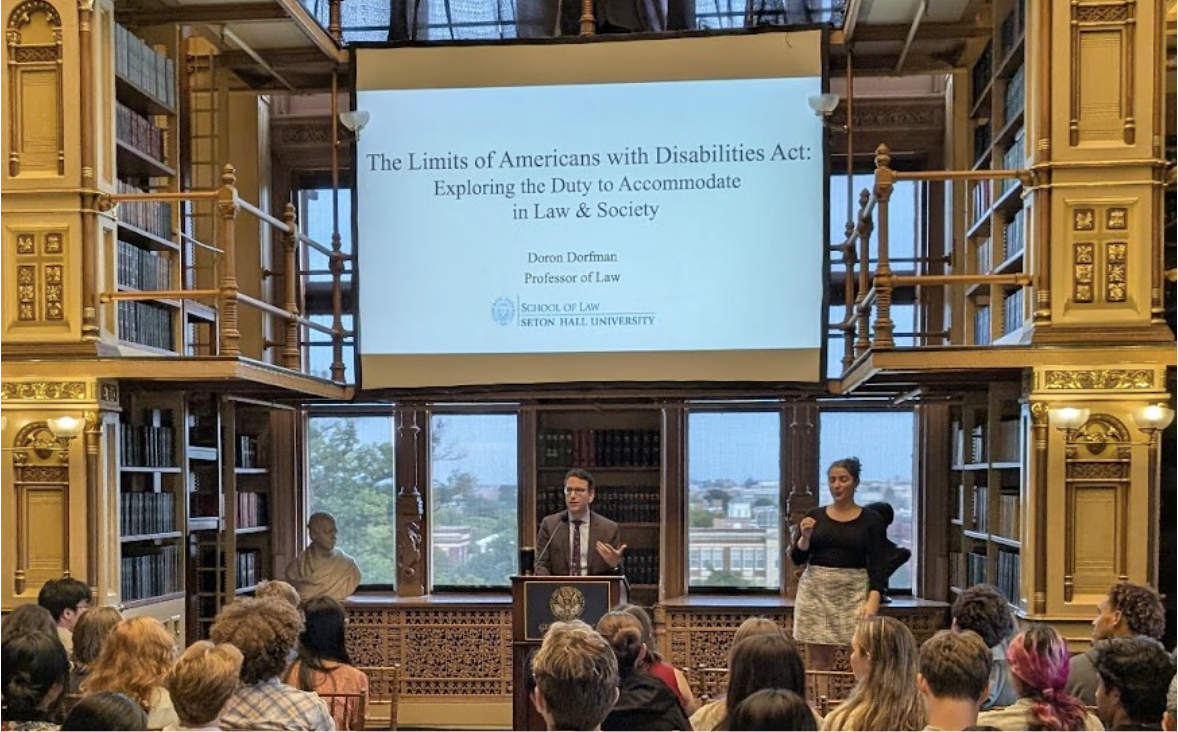Two pro-abortion student organizations hosted a virtual lecture on abortion education March 11.
H*yas for Choice (HFC), a reproductive rights organization at Georgetown University, and the Georgetown University Medical Center chapter of Medical Students for Choice (MSFC), a nonprofit organization striving to inform medical students about all parts of reproductive health care, hosted the lecture. The event featured Dr. Sara Imershein, an OB-GYN and clinical professor at George Washington University (GWU) School of Medicine.
A spokesperson for MSFC said the event aimed to fill gaps in knowledge regarding the basics of abortion that GUSOM’s curriculum is said to leave out.
“The goal of this event is to bridge gaps in our curriculum to give our peers the tools to provide safe, effective, lifesaving care to their future patients,” the spokesperson wrote to The Hoya.
The spokesperson added that MSFC was grateful to welcome Imershein to talk to Georgetown medical students, especially given differences in curricula between GUSOM and GWU.
“Unlike GW, at GUSOM the fundamentals of abortion are not offered as a part of our formal curriculum, making it that much more important to supplement our education with lectures from experienced providers like Dr. Imershein,” the spokesperson wrote. “It is beyond important that rising doctors today have a comprehensive reproductive health education to be the best possible resource for their patients, and that must include how to provide and counsel about abortion.”
Sabrina DeLeonibus (MED ’27), an MSFC leader, said the organization was pleased to welcome Imershein and her experiences to the Georgetown community.
“She continues to be an advocate for reproductive rights, and is making strides in activism and education,” DeLeonibus said at the event. “We are so grateful to have her here today to expand our knowledge on abortion health care and access.”
Imershein said she was excited to work with the upcoming generation of physicians as an OB-GYN with nearly 30 years of experience.
“It is really my privilege to impact the next generation of physicians,” Imershein said at the event. “When I was a young doc, I always said when I grow up and retire I am going to do abortions, and it has been very rewarding.”
Imershein added that she wanted to provide substantial education about abortion safety while staying mindful of the politicization of abortion.
“I am not trying to change anyone’s values on whether you think abortion is right or wrong,” Imershein said. “I just want you to know the facts, keeping abortion safe, legal and accessible for those who want to avail themselves to this medical procedure.”
In 2023, medication-based abortions accounted for nearly two-thirds of terminated pregnancies in the United States. One such medication is mifepristone, which blocks progesterone, a critical hormone in early pregnancy. Mixed signals from the administration of President Donald Trump, however, have raised concerns about the continued availability of mifepristone. Misoprostol, another abortion medication taken with mifepristone, causes contractions to expel the pregnancy tissue.
Imershein said there are multiple benefits to safe and accessible abortions.
“It preserves patient autonomy and improves individual health, because we know that planned pregnancies are healthier,” Imershein said. “Having a pregnancy when you’re ready to have a baby results in a healthier pregnancy for mother and baby, respects personal values and creates equity in our society.”
The event also discussed Dobbs v. Jackson Women’s Health Organization, the 2022 Supreme Court decision that revoked the constitutional right to abortion and allowed state legislatures to regulate any aspect of abortion.
Imershein said people across the United States continue to experience the impacts of Dobbs, including a shortage of health care providers.
“It is worsening the shortage of health care providers, especially in rural areas, which overwhelmingly are abortion-hostile states,” Imershein said.
Imershein added that the Dobbs decision has decreased interest in the OB-GYN specialty, especially in states that have implemented more restrictive laws against abortion.
“Fewer doctors are going into OB-GYN since the Dobbs decision, and many residency programs have not filled in the South because people do not want to apply to a place where they will get inadequate training,” Imershein said.
The MSFC spokesperson said the organization is encouraged by increasing participation by Georgetown medical students.
“The Georgetown chapter has been present for numerous years, with a recent reinvigoration during Spring 2023,” the spokesperson wrote. “Since then, the Georgetown chapter has recruited 30+ members in the school of medicine, and continues to grow and solidify a campus presence at GUSOM.”
Imershein said evidence-based education regarding abortion — similar to that which she discussed at the lecture — is important in achieving both holistic student learning and equitable policy.
“This is a perfect example of patient-centered care,” Imershein said. “Health policy must be evidence-based, not by religion or politics.”




